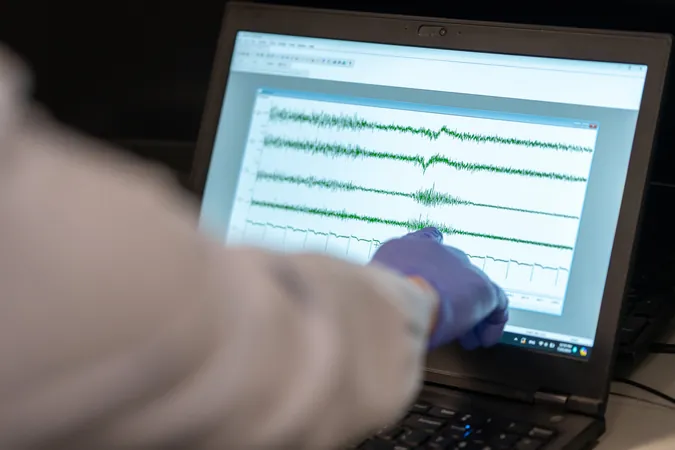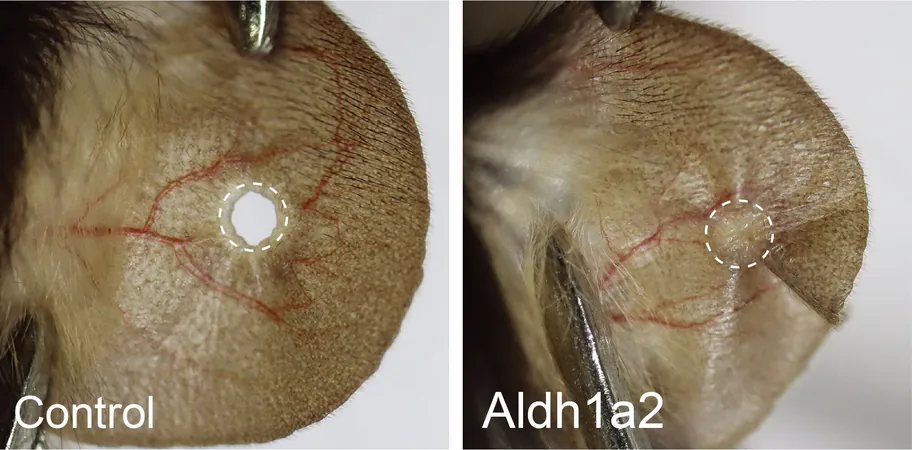
Groundbreaking Research Maps the Future of Bioelectronic Medicine
2025-01-21
Author: Yu
Introduction
Bioelectronic medicine is on the cusp of a revolution, leveraging electrical signals instead of traditional pharmaceuticals to diagnose and treat various health conditions. From the ancient Egyptians harnessing electric fish to alleviate headaches to the groundbreaking development of pacemakers in the 1950s, this field has come a long way. But what lies ahead for this innovative discipline?
A Landscape of Possibilities
Bioelectronic medicine has already carved out a significant niche in contemporary healthcare. The U.S. Food and Drug Administration has given the green light to various implantable devices designed for conditions such as Parkinson's disease, spinal cord-related pain, epilepsy, and even mood disorders. Additionally, non-invasive modalities, such as transcranial magnetic stimulation (approved for depression in 2008), have broadened the scope of how these technologies can be integrated into treatment regimens.
Lerman points out the strong potential in non-invasive techniques, noting they circumvent the risks associated with surgical interventions. “The growth potential is immense. Unlike drugs, these devices require nothing more than electricity or a battery to function, tapping into the body’s own biological systems to reduce inflammation,” he explained.
An exciting concept is the development of self-regulating "closed-loop" systems. By pairing bioelectronic devices with sensors, personalized treatment regimens could be dynamically adjusted based on an individual’s biomarker feedback, leading to truly customized healthcare solutions.
Revolutionary Capabilities Ahead
Beyond traditional applications, bioelectronic medicine might introduce groundbreaking diagnostic capabilities. Previous studies indicate that the body’s immune response varies by infectious agent, allowing for the creation of a “pathogen library.” This library could enable healthcare providers to identify pathogens and implement precise neuromodulation strategies to mitigate infection severity.
Lerman expressed ambition in building this library: “By pinpointing unique pathogen signatures, we could use targeted neuromodulation to combat inflammation associated with various infections,” he said.
Mental health is another frontier where bioelectronic technology could have a transformative impact. Research increasingly links inflammation and immune system responses to disorders like PTSD, major depressive disorder, and anxiety. With systems in place to assess levels of brain inflammation, bioelectronic medicine could allow clinicians to tailor treatments specifically to the severity of mental health conditions.
Emerging technologies, such as autonomic neurography (ANG), promise to provide precise measurements of mental health severity and could revolutionize clinical trials, delivering customized treatments that are both effective and responsive to individual patient needs.
The Road Ahead
While the journey to implement these advanced systems is still underway, Lerman is optimistic about the future. “We are on the brink of new waves in personalized, adaptive treatment systems,” he asserted. As research continues to unfold, the potential applications of bioelectronic medicine could not only redefine therapeutic approaches but also usher in a new era of healthcare driven by precision and adaptability.
As this field evolves, the implications could be profound, rewriting the ways we think about treatment and our interactions with medical technologies. Stay tuned, as bioelectronic medicine might just be the next big frontier in revolutionizing health and wellness.



 Brasil (PT)
Brasil (PT)
 Canada (EN)
Canada (EN)
 Chile (ES)
Chile (ES)
 Česko (CS)
Česko (CS)
 대한민국 (KO)
대한민국 (KO)
 España (ES)
España (ES)
 France (FR)
France (FR)
 Hong Kong (EN)
Hong Kong (EN)
 Italia (IT)
Italia (IT)
 日本 (JA)
日本 (JA)
 Magyarország (HU)
Magyarország (HU)
 Norge (NO)
Norge (NO)
 Polska (PL)
Polska (PL)
 Schweiz (DE)
Schweiz (DE)
 Singapore (EN)
Singapore (EN)
 Sverige (SV)
Sverige (SV)
 Suomi (FI)
Suomi (FI)
 Türkiye (TR)
Türkiye (TR)
 الإمارات العربية المتحدة (AR)
الإمارات العربية المتحدة (AR)